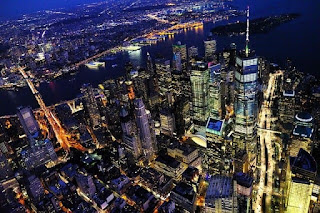I'm not happy with the recent 5-4 decision by the U.S. Supreme Court in Roman Catholic Diocese of Brooklyn, New York v. Andrew M. Cuomo, Governor of New York to enjoin New York's occupancy limits on churches and other monuments to nonsense in the midst of the COVID-19 pandemic. I don't have a difficult time understanding why many of the atheists I see expressing their outrage on social media are framing this as additional evidence that religious beliefs are given greater value than human life or even that this ruling sounds a bit like churches have been given free reign to harm the rest of us. Still, I can't resist pointing out one possible problem with interpretations like this.
I think that city, county, and state governments are probably on thin ice, legally, if they treat churches too differently than how they treat businesses, schools, and other secular groups. I'm not claiming this was necessarily the case in New York, as I'm not sure. But I have seen many atheists venting who seem fine with gyms and restaurants remaining open while churches are closed. Their argument seems to be that churches should be treated differently because they serve no positive function. Regardless of whether the claim about churches offering nothing of value is true (and it may be), I suspect that courts are not going to go along with churches being treated differently than businesses. Why? Because that really does start to look like a violation of religious freedom.
If things were bad enough in a city that public schools and all non-essential businesses were closed, closing churches would probably be easier to defend. In such a case, exempting churches from the same laws everyone else had to follow would be a case of preferential treatment that courts should not allow (although I realize our current Supreme Court might still do so). As far as I am concerned, churches should be treated no better and no worse than businesses, schools, etc. Singling them out for worse treatment is problematic, and granting them special exemptions is problematic.
Circling back to the question of the public good and whether churches contribute to it in any way, I suggest that this is one of the reasons they should be taxed. If businesses pay taxes, we have at least one obvious way they are contributing to the public good. A thriving business in your community is providing you with something beneficial through the taxes they pay even if you never interact with the business directly. Your roads, water supply, law enforcement, and all sorts of other things are being supported by the taxes this business pays. As for your local church, it isn't usually clear that we could say the same. Some churches will point to their charitable work, but I think it is fairly obvious to most observers that many churches do very little of this. If they paid taxes like everybody else, they would be contributing something meaningful.
Secularism is supposed to entail neutrality on the part of the government toward religious institutions. Again, the idea is that they are treated no better and no worse than their secular counterparts. We learned not so long ago that "separate but equal" doesn't work because it isn't neutral and it isn't conducive to equality. When religious institutions escape taxation, this doesn't look like equality or neutrality. Perhaps it is time to treat religious institutions like their secular counterparts. There should be no religious exemptions to public health and safety.
For more on this topic, see We Must End Religious Exemptions and Ensure Equal Treatment Under the Law.
